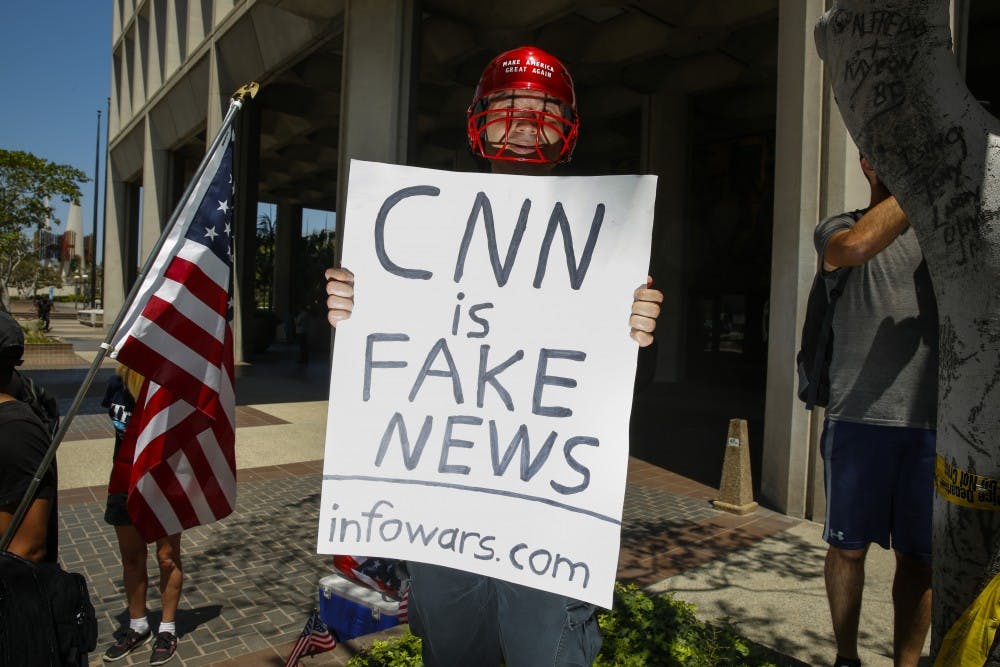News coverage in the days following tragic events is heartbreaking enough to send chills up anyone’s spine. Tributes and profiles of victims — their lives, dreams and loved ones — are a necessary part of properly mourning after a tragedy happens, and I believe that we as viewers should feel the heartbreak and enormity of these events.
In fact, the aftermath of the Las Vegas massacre seemed to generate a lot more dedication to remembering and honoring the victims than past tragedies have seen. This is a move in the right direction; we need to focus on the lives of the victims rather than on the attackers.
But some people on social media have started using these tragedies to their advantage in order to gain more likes and followers. They’ve been spreading fabricated reports of victims, perpetrators and the like all throughout social media.
The devastating shooting in Las Vegas was met with many false news stories spreading across social media, and many of them had significant impacts. Geary Danley – the ex-husband of the shooter’s girlfriend, Marilou Danley – received death threats after an article posted on Facebook falsely named him the shooter.
Within a few hours of the shooting, the terrorist group the IS claimed responsibility for the massacre, and social media just assumed that this was valid. This lead to misinformation about the shooter converting to radicalism. In reality, authorities have still not found any connections between the shooter and the IS.
There’s no doubt that social media sites need to consider every option to prevent people from abusing their platform, and leaders are working on doing this. However, because social media sites are designed to give us, the everyday users, publisher status of our own content, it’s extremely difficult to properly scan every post for accuracy. Even one false story that gets out can cause huge ramifications.
In a time when images of attacks and devastation overwhelm news media and, really, our lives, it is irresponsible for any person to create false news stories or reports in order to generate buzz on social media. Just because our free speech is protected doesn’t mean we can take advantage of the platforms we have.
We need to hold ourselves accountable.
If we stop putting up with social media users who make and spread misinformation, then things will change. As much as leaders of social media sites may want to stop the issue, the only people who can stop it are us, the users of social media. Don’t let yourself be tempted by a headline that pops up on your timeline — check the validity of the source. Don’t continue to follow accounts that post fake news. Unfollow them and tell your friends to do the same thing. Let’s take away what these people think they’re gaining so that they stop feeding into this vicious cycle.
Even for those who don’t create false news stories, we can still do something to hold those who are accountable. If we click on a news story and the source hasn’t been deemed reliable, don’t share it. Do your homework — all it takes is a Google search to easily figure out if a story is true or not.
We need to decide for ourselves that the practice of creating false stories and spreading them as if they are real is unacceptable to us. Only then will those who spread fake news back off.

